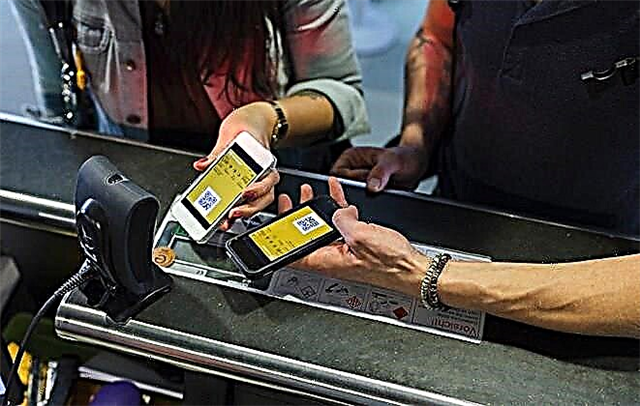It is now considered profitable to become the owner of Italian real estate, no matter how you look at it. This makes it possible to spend time in your own apartment without spending money on hotels, apply for a long-term visa and just enjoy your stay in one of the most beautiful countries in Europe. But what if you really want to buy a home abroad, but you don't have enough money? How affordable a mortgage in Italy is for foreign citizens, let's try to figure it out in detail.

What is the Italian real estate market
It is very difficult to buy real estate in bad condition in Italy. Objects of the category "below average" practically do not exist here. If at home we can buy an apartment in a very poor condition and make repairs in it ourselves, thereby reducing the cost of the transaction, then this is impossible to do here. Real estate in Italy must comply with the quality standards set by the regulatory authorities.
Italy is an attractive destination for tourists. Accordingly, the prices for objects directly depend on the popularity of the place in which they are located.
The most expensive home buying will cost in Naples, Venice and Rome. For example, a 2-room apartment with an area of 42 square meters in Venice will cost from 150 thousand euros.
Detached house up to 90 sq. m with a kitchen, bathroom, two rooms and a garage will cost an average of 350-400 thousand euros, if we talk about the demanded region. And in Sardinia or Sicily, the cost of such an object will be 2-3 times less.
The so-called studios are very popular here - apartments, which are a common space in which only the bathroom is allocated. To buy such a room can be twice as expensive as an ordinary apartment. The second place in terms of demand is occupied by villas with vineyards; if the shrubs bear fruit, the price for such an object will be several times higher than for a similar cottage on the coast.
Mortgage conditions for foreigners
Mortgages in Italy for Russians in 2021 have a number of features: banks impose a lot of requirements on borrowers. You can get a loan only if the cost of the object is at least 300 thousand euros. You need to pay attention to the following points:
- to apply to a banking institution, you must have a preliminary contract for the purchase of real estate. This is a kind of consent of the seller to sell.
- the bank will definitely appoint an expert assessment of housing and create a commission for its implementation. This service is paid by the buyer.
- foreigners will be offered maximum rates and minimum loan terms.
- the object must certainly be registered in the register of residential real estate in Italy. It is very difficult for foreigners to issue a loan for the acquisition of a non-residential property.
- crediting is possible both for the completed object and for the one under construction.
Real estate in Italy on credit for foreigners is available on the following conditions (summarized data on Italian banks):
- floating rate - 2.8-3.5%
- fixed rate - 3.6-5.5%;
- term - up to 40 years;
- the minimum maturity period is 5 years;
- initial payment - 25-40% of the amount;
- the minimum loan amount is 50 thousand euros (many lend only from 100 thousand);
- currency - euro;
- the amount of payments should not exceed 35% of the total income of the applicant.
It should be remembered that each banking institution will offer individual credit conditions based on the applicant's income level and from the purchased object.
Features of registration of a mortgage
To buy an apartment in Italy on credit, you need to go through several stages:
- Sending a written notice to the seller of the intention to purchase his immovable property.
- If you receive a positive answer, you can proceed to drawing up a preliminary contract. It must indicate how much the amount of the deposit was (usually 1-3%).
- Preparation of a package of papers.
- Submitting a request to the bank.
- An independent appraisal of the object by the lender.
- Obtaining a bank decision.
- Registration of a contract for real estate insurance.
- Opening an account.
- Signing a sales contract with a notary.
- Obtaining a copy of the deed of transaction and keys.
- Registration of housing for the new owner.
How to choose a bank

Almost all banks arrange a loan for real estate in Italy for non-residents. Based on the Code of Consumer Rights in force in the country, each borrower has the right to receive from the lender complete, understandable and clear information regarding the loan agreement. In October 2003, this principle was enshrined at the legislative level.
Each banking institution is obliged in all its branches to post information booklets containing a detailed description of the economic conditions of lending. If the borrower cannot independently assess how profitable the offer is, he has the right to contact the Consumer Protection Association or a notary.
In order not to miss the most profitable offer, you need to follow a few rules:
- Select the item you want to buy. This will allow the bank to conduct an expert assessment and determine what the maximum loan amount it can provide. Do not take too much credit. The higher the loan amount, the higher the monthly payment you will expect.
- Assess your ability to pay the down payment.
- Check the final rate.
- Calculate your monthly installment and compare it to your income.
- Find out what additional costs and hidden fees can be expected. For example, how much will the housing appraisal service cost, how much insurance costs, and so on.
- Inquire about the possibility of early repayment of the loan.
- Find out how payments are made - at the bank's cash desk, through the online system, etc.
Finding suitable properties and banks where mortgages in Italy are possible is best done through a professional broker who knows the market. It is advisable to resort to his help: the broker will be able to check the documents for the premises, take on the task of communicating with the owner of the home, find out the situation and give an opinion whether it is worthwhile to arrange a mortgage on this object at all. Payment of the broker's commission is carried out only if the bank's decision turns out to be positive.
The list of banks to which applications can be submitted will depend on the region and on which of them the broker works with. Both Italian banks and international financial institutions issue mortgages.
Preparing documents
The package of documents for filing with the lender is quite extensive:
- Copy of your international passport.
- Codice Fiscale is an analogue of the Russian tax identification number (TIN). You can get it immediately after signing a preliminary contract at the consular department.
- Papers that can confirm solvency.
- Documents for the purchase object.
As a confirmation of solvency, you can provide:
- If you have your own business, documents stating that you own it. Usually, the owners of companies have a resident status, and this can facilitate the process of obtaining a mortgage.
- Certificate of employment with an indication of the salary (for those who work in the country for hire). This can affect the size of the rate.
- Bank statement on the movement of funds or on deposits.
- Declaration of income.
- Certificate of payment of tax liabilities.
- Proof of alimony payment.
- Other additional papers at the discretion of the bank.
As for the documents for the object of purchase and sale, here you will need:
- Preliminary agreement.
- Proof of ownership for the seller.
- Extract from the cadastral register.
- If a building under construction is purchased - a building permit.
All documents must be translated into Italian and notarized.
We open a bank account and sign an agreement
There are two options for opening an account in order to get a loan for housing in Italy:
- For residents - the procedure looks standard, as for the citizens of the country. From the documents, you must present a residence permit, passport, Codice Fiscale.
- For non-residents, it will be possible to open only a separate type of account: conto internazionale or conto esterо. Its maintenance is more expensive, the account currency is the one that is valid in the applicant's country. That is, you still have to pay for the conversion. You will need a valid visa to open an account.
If the bank's decision is positive, the borrower will be invited to the bank to sign the agreement.
How long does it take to get a loan
Buying Italian real estate on credit may take some time. It usually takes 3-4 days to process a request. But practice shows that sometimes the lender needs more time and the decision is announced only after one and a half to two months.

It depends on many factors: on the status in which the applicant lives in the country, on the level of his income, on the object itself. It should be remembered that the bank will meet halfway if it is sure of the origin of the borrower's income, is satisfied with his credit history, information regarding the availability of deposits and property.
What expenses to prepare for
To obtain a loan, you need to prepare a budget, which should be enough to cover the following items of expenses:
- insurance - most often banks require insurance against accidents or job loss. This is about 40 euros per month for the basic payment. Real estate insurance - 150-500 euros every year;
- commission to an intermediary - a mortgage broker in Italy takes 1% of the loan amount;
- notary services can cost 4-8 thousand euros for the preparation and registration of the transaction, as well as for the re-registration of ownership;
- assessment of the object - 270-300 euros, if the cost exceeds 1 million euros - 500-550 euros;
- loan processing fee - 0.25-2% (depends on tax incentives).
Briefly about property tax
Annual property taxes in Italy range from 0.4-0.7% of the property's value recorded in the cadastre. The rate is calculated individually, based on the status of the region in which the property is located. For example, in Milan it is 0.5%.
In addition, there are condominium payments for housing. You will have to allocate from 200 to 5000 euros for an apartment every year. For a villa - 1.2-6 thousand euros for the same period of time. This amount does not include utilities.
Electricity will cost about 0.2-0.3 euros per 1 kWh, water supply - 15-20 euros per month, gas cylinder - 50-60 euros.
Loan repayment
Italian law does not prohibit borrowers from making payments earlier than the contractual deadline. But it should be remembered that in this case, the bank loses its profit on interest. To insure itself against this, the lender may impose an early repayment penalty on the client.
The point regarding the timing of payments is always stipulated in the contract. Read it carefully before signing.
If the information is not found, you need to ask the loan manager who will deal with your application. This will avoid unexpected commissions in the future.
Outcomes
A loan to buy a home in Italy for foreign citizens is a service possible, but not very profitable. Most often, banks set higher rates and unfavorable conditions for non-residents. Registration of a mortgage is accompanied by many additional payments, the amount of which can reach several thousand euros.
Since 2021, in 95% of cases, Russian banks have been denied mortgages by Italian banks. If the client has official income in the Eurozone, the loan will be given; assets only in Russia, even if not small, banks refuse to consider as collateral for a loan.











